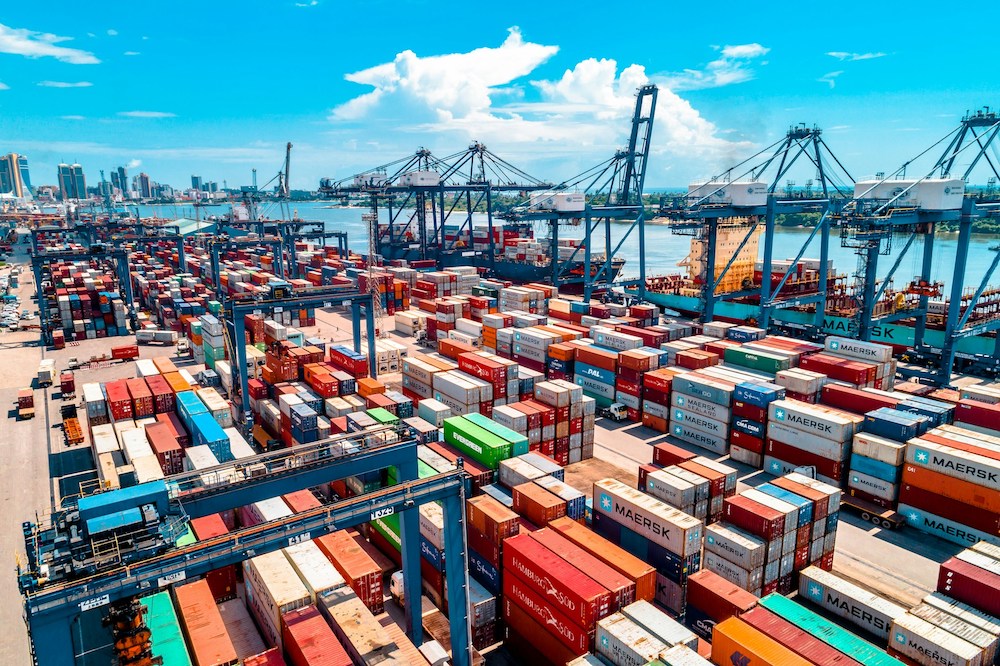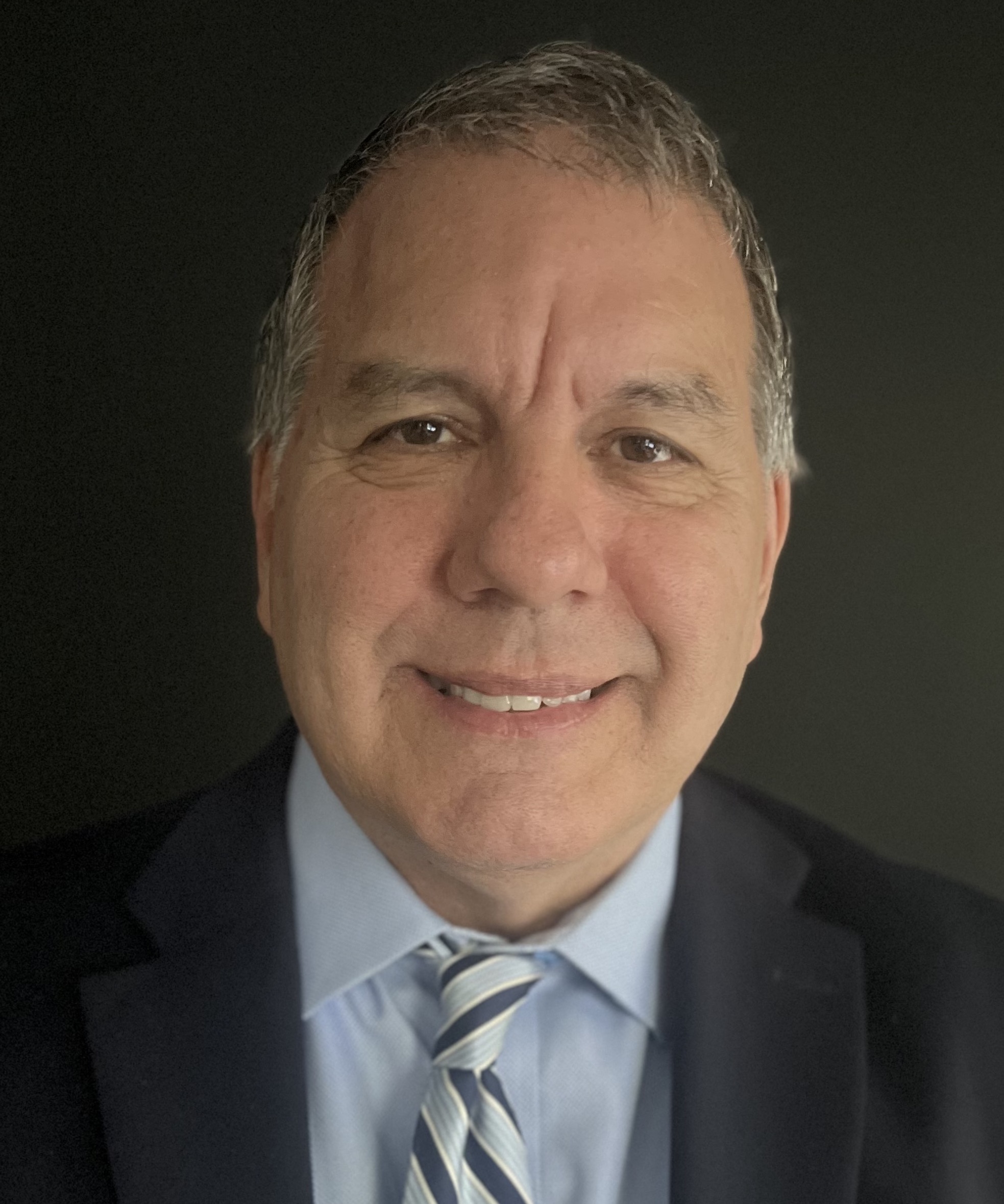
- Details
- By Jamie Miller, Special to Tribal Business News
- Economic Development
Tribal enterprises are turning crisis into strategy as President Trump’s sweeping tariffs ripple through Indian Country, with Native leaders drawing on pandemic lessons and exploring sovereign solutions — from invoking the 1794 Jay Treaty to accelerating cross-border partnerships — to shield their communities from economic pressures.
Trump announced tariffs on specific countries and commodities hours after his January inauguration. The move, aimed at protecting American interests, has shaken diplomatic relations and markets, causing unease for consumers and business owners alike.
Tariff rates vary by country and commodity. China responded with 125% reciprocal tariffs to America’s 145% levy, while more than 75 other countries have requested negotiations, according to the federal government.
On May 12, the United States and China agreed to temporarily reduce these tariffs — 30% for U.S. imports from China, and 10% for Chinese imports from the U.S. — for a 90-day negotiation period. The baseline 10% U.S. tariffs on most countries remain in place.
Although the long-term effects of the tariffs are uncertain, many economists expect higher prices for imported goods as companies pass on increased costs, according to BBC news. For tribal businesses navigating already complex economic landscapes, the tariffs represent a challenge to be managed rather than a crisis.
 Jeff St. Louis, CEO of Native Purchasing Group, works with tribal enterprises to navigate supply chain challenges amid rising tariffs. His organization negotiates discounted pricing for Indian Country on everything from medical supplies to hospitality equipment.Jeff St. Louis, a member of the Sault Ste. Marie Tribe of Chippewa and CEO of Native Purchasing Group, is bracing for impact. NPG works with over 3,400 vendors to secure low prices — exclusively for Indian Country — through group costing of goods across many industries, ranging from office supplies to food products.
Jeff St. Louis, CEO of Native Purchasing Group, works with tribal enterprises to navigate supply chain challenges amid rising tariffs. His organization negotiates discounted pricing for Indian Country on everything from medical supplies to hospitality equipment.Jeff St. Louis, a member of the Sault Ste. Marie Tribe of Chippewa and CEO of Native Purchasing Group, is bracing for impact. NPG works with over 3,400 vendors to secure low prices — exclusively for Indian Country — through group costing of goods across many industries, ranging from office supplies to food products.
“I am already hearing from distributors that ‘Hey, you might to let your members know that our prices are going up’ because there is a strain on them. Not only that, but on the food side as well,” Louis explained.
For tribal healthcare systems specifically, St. Louis warns of outsized impacts. A substantial amount of tribal expenditures come through healthcare, and most tribes purchase private label healthcare brands from major distributors who source up to 90% of those products from China, he said.
Beyond healthcare supplies, St. Louis identifies several other vulnerable sectors in tribal enterprises: food distributors that rely on Mexican and Canadian imports, hospitality equipment for tribal hotels and casinos, and office supplies, which “touch every part of the tribal unit from the medical side to the government offices.”
Each of these categories could see double-digit price increases from tariffs, potentially erasing the savings his group purchasing organization typically secures for tribal buyers, he says.
For tribal seafood enterprises like Suquamish Seafoods, the tariff impacts have been immediate and severe. The tribe’s geoduck operation — harvesting valuable clams that are fetching up to $100 per pound in Chinese restaurants — has ground to a halt since China imposed its reciprocal tariffs.
“The whole market, everybody just had to stop,” Jim Boure, general manager of Suquamish Seafoods told the Associated Press. “We started getting phone calls from buyers saying orders are canceled.”
Tribal member Joshua George, who has been diving for geoducks for 24 years, now faces unprecedented uncertainty: “It's the first time where I don't know when or if we'll be going back to work or if I have to find another job.”
Rather than waiting for similar impacts to hit their bottom lines, other tribal enterprises are drawing on hard-earned lessons from previous disruptions, including the COVID-19 pandemic.
“The pandemic prepared us for these kinds of things,” said Julio Martinez, who leads Mno-Bmadsen, the Pokagon Band of Potawatomi’s non-gaming investment arm. “While the pandemic was a totally off-the-wall, Black Swan event no one expected, tariffs are what I’d call a known unknown. We know there’s uncertainty, and that itself is information we can use to plan.”
For D.A. Dodd, an HVAC and plumbing contractor owned by Mno-Bmadsen, tariff uncertainties have prompted a shift in purchasing strategy. Rather than buying components just before installation, the contractor is now pre-purchasing and warehousing Canadian-made components. While storing parts isn’t optimal for cash flow, Martinez said, it ensures they can honor original bid prices.
With a major data center project near the Michigan-Indiana border, Martinez has convinced the client to accelerate approvals for major equipment purchases. Typically, clients wouldn’t release funds this early in the construction timeline, but owners are willing to do it “because it takes risk off the table for everyone.”
The impact on mergers and acquisitions in Indian Country is also becoming apparent, according to Tanya Gibbs, a member of the Little Traverse Bay Band of Odawa Indians and a founding partner at Mshkawzi Law LLP. In her transaction work with tribal economic development corporations, Gibbs has seen subtle, but important, adjustments to current deals that are in mid-acquisition.
 Julio Martinez (left), CEO of Mno-Bmadsen, and Tanya Gibbs (right), founding partner at Mshkawzi Law LLP, are among Native business leaders developing strategic responses to Trump's tariffs—from pre-purchasing Canadian components to exploring sovereign-to-sovereign trade models. “There's certainly been some pivoting on the diligence side, and discussions about how to beef up representations and warranties to protect ourselves from potential tariffs—how do we put that back on the seller?” Gibbs told Tribal Business News.
Julio Martinez (left), CEO of Mno-Bmadsen, and Tanya Gibbs (right), founding partner at Mshkawzi Law LLP, are among Native business leaders developing strategic responses to Trump's tariffs—from pre-purchasing Canadian components to exploring sovereign-to-sovereign trade models. “There's certainly been some pivoting on the diligence side, and discussions about how to beef up representations and warranties to protect ourselves from potential tariffs—how do we put that back on the seller?” Gibbs told Tribal Business News.
Rather than derailing deals entirely, the uncertainty is prompting more careful structuring of agreements. “It’s having an effect on valuations,” Gibbs said. “Not necessarily a reduction in price, but more structure on how to take some of the buyer risk off the table.”
In a recent survey conducted by Tribal Business News, key concerns were the increased costs of food, the health industry, construction and housing. Many respondents worry that tariffs will exacerbate the existing issue of limited accessibility to resources.
“Our community is already remote in Alaska and tariffs will add to the costs. Implications of COVID already devastated the community and people are trying to address health industry shortfalls and being understaffed,” one member of the Ketchikan Indian Community responded.
Tourism-dependent tribal enterprises face another tariff-related challenge as international tensions rise. Projections show a nearly 10% decline in international visitors to the U.S. in 2025, due in part to resentment over U.S. trade policies, including the new tariffs. That translates to a potential $64 billion loss to the tourism industry nationwide, with ripple effects for Indigenous tourism — itself a $14 billion industry.
“One of the biggest markets for Indigenous tourism are our international visitors,” Sherry Rupert, CEO for the American Indian and Alaska Native Tourism Association, told Tribal Business News. “Fewer people coming over is of course going to impact those revenues for communities relying on tourism.”
For tribes with businesses that rely on international supply chains, the search for alternatives is intensifying.
“We have options for our members because not all suppliers manufacture outside the U.S.,” Native Purchasing Group’s St. Louis explained. By leveraging the collective purchasing power of its tribal membership—which includes over 400 tribal organizations—NPG negotiates contracts at discounted rates with thousands of vendors. This approach could help tribes mitigate some tariff-related price hikes, with NPG members typically saving 10-25% on medical supplies and up to 20% on food services.
“It's about helping communities navigate this economic landscape in any way we can,” said St. Louis, who estimates that nearly 80% of tribal healthcare purchases currently come through the tariff-vulnerable private label brands.
Some tribes are looking to the Jay Treaty of 1794 for a potential source of relief. These treaties are the oldest commerce treaties in the country and would exempt tribes from tariffs, treating them as a government entity.
Patrick Garrison, treasurer of the Lac Vieux Desert Band of Lake Superior Chippewa Indians, is both hopeful and skeptical about these treaties being recognized.
“If we can join together as tribes and have a consolidated effort to ensure that treaty obligations are upheld by the government, then perhaps we would be successful, but as an individual tribe there is not a whole lot we could do to make headway,” Garrison explained.
The Blackfeet Tribe of Montana is among the first to take a stand by filing a lawsuit against the US Department of Homeland Security and the agent’s highest ranking official, Kristi Noem.
The lawsuit was filed on April 4 and specifically calls out the Canada Orders, stating that the Blackfeet are looking for relief to conduct their specific trade and commerce across the Blackfeet Nation on the Canada border.
The Trump administration has yet to publicly respond to the lawsuit or make a comment on tariff exemptions for Native Americans.
The uncertainty around tariffs is also prompting renewed interest in sovereign-to-sovereign trade models that could potentially circumvent tariffs. Gibbs, the attorney, and a colleague based in Canada have been researching free trade zone structures that tribes and their enterprises could use for a decade, but the idea has been shelved repeatedly.
“It's just one of those things that somebody gets excited about, we do a bunch of work on it, and then they're like, ‘That seems like a big pain,’” Gibbs said. “Then a couple years later, somebody else gets the idea and we dust off those old memos.”
After five or six cycles of renewed interest followed by inaction, Gibbs believes the current economic pressures will finally push the concept forward. “I think we’re going to get it done this year because the tariffs — coupled with all the budget cuts, grant reductions and (chaos) coming from the White House — are pushing tribes in that direction.”
For tribes with historical cross-border relationships, these structures offer more than just tariff relief. “Tribes are better suited to exercise their sovereignty and trade with their sister sovereigns across borders,” Gibbs said, adding that such partnerships could become “a huge economic driver” for tribal economies.
With uncertainty likely to remain a certainty for the time being, the solution to navigating tariffs in Indian Country could be a mitigation tactic that is known all too well.
“We just have to adapt and overcome,” said Garrison.
Chez Oxendine and Brian Edwards provided reporting.
Editor's Note: This story has been updated to include information about the temporary rollback of tariff rates between the U.S. and China that was announced on Monday, May 12.